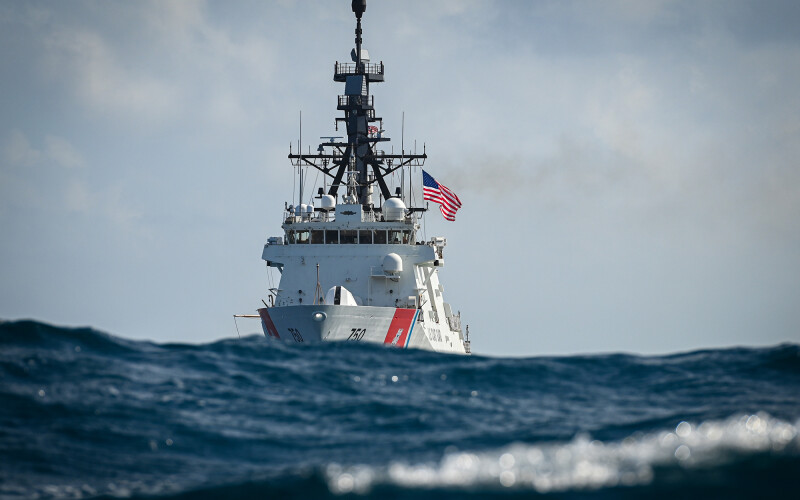As an increasingly uneasy marriage between national security, law enforcement, and regulatory authorities, the U.S. Coast Guard needs to consider adopting a service secretary. The Coast Guard is the only military service run exclusively by its own admiralty, and, outside of distant guidance by an often overworked and distracted secretary of homeland security, the service lacks a political appointee that is dedicated directly to the Coast Guard.
At the Pentagon, service secretaries fill this void. As political appointees, service secretaries have the flexibility to engage in political advocacy, and they work within the Department of Defense to help adjudicate inter-service funding and jurisdictional squabbles. Often serving longer than the admirals they support, service secretaries can afford to take a long-term, strategic view of their service.
The Coast Guard, tucked away in the Department of Homeland Security (DHS), doesn’t have this type of powerful political advocate. Right now, there’s nobody available outside of the commandant who can help the Coast Guard hold its own among the other 15 operational and support components at DHS.
That’s a problem.
A Coast Guard secretary offers the service a fighting chance at DHS. Coast Guard leadership cadres are military officers at the tail end of a multi-decade career. Other DHS components are run by political appointees, with the full backing of the president. It can be tough for a grizzled Coast Guard commandant — an officer who has been trained for years to be deferential to civilian authorities — to politely wave off a brash, newly-appointed U.S. Customs and Border Control commissioner who is eager to encroach on traditional Coast Guard funding lines or authorities.
As a civilian, a Coast Guard secretary can help the commandant, allowing the Coast Guard to engage other DHS components on a more equal footing.
In today’s heated political environment, it is also perilous for Coast Guard officers to mix mission execution with political advocacy. This is why the White House ignominiously fired the Coast Guard commandant, Adm. Linda Fagan, hours after the inauguration of President Donald Trump. Had Adm. Fagan been simply carrying out directives from a Coast Guard secretary — and not been seen as the Coast Guard’s de facto political leader — she’d likely still be on the job.
A secretary of the Coast Guard would help insulate Coast Guard leadership from political entanglements. The lucky political appointee would also likely handle 11 tasks that are traditionally handed to other DOD service secretaries. Recruiting, equipping, training, maintaining and building infrastructure are important, but they are also innately political tasks. A Coast Guard secretary frees up the commandant to focus on execution, rather than on political maneuvering.
The Coast Guard is, like any military organization, built around a chain-of-command. That’s great for a military service, but it can make accountability far more challenging. By recruiting a Coast Guard secretary from civilian life, outside of the Coast Guard’s close-knit cadre of dedicated officers, there’s more space for rational analysis. The Coast Guard admiralty struggles to hold peers and old college classmates accountable, while a new Coast Guard secretary, dropped into the service from civilian life, isn’t likely to be so restrained.
The Coast Guard needs high-level political help. In big procurements, the Coast Guard often loses perspective. Rather than focus on getting, say, a ship in the water, the Coast Guard sometimes focuses too much attention upon the minutia of political gamesmanship. This, too, is where a Coast Guard secretary might make a material difference — by relieving Coast Guard personnel of fraught political tasks, high-level Coast Guard personnel can, again, focus on mission execution.
The U.S. Coast Guard touches every aspect of America’s maritime. The Coast Guard’s mission portfolio is enormous, and the always-stressed district and sector commanders need all the help they can get. A Coast Guard secretary, brought in to help support America’s iconic, low-budget team of maritime law enforcers, is overdue.




